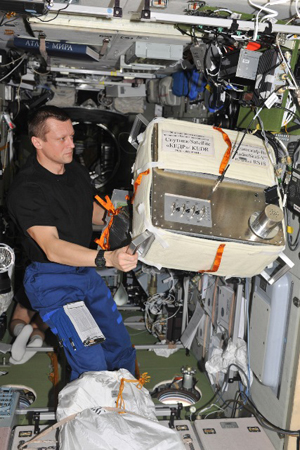 Re: PIC's in space
Re: PIC's in space

Originally Posted by
Charles Linquis

I'm not denying that you can find the same one at Home Depot for $20. My point is that the military probably will not buy that hammer from Home Depot without a test report stating that it meets certain requirements.
I see all sorts of requirements, such as NO PVC (Polyvinyl Chloride) - a common plastic used to coat lots of things, like hammer handles and wire insulation.
PVC can't be used because if it is in a fire, it releases toxic fumes, which can kill a pilot or a submariner.
Also, we sometimes have to prove (by analysis or testing) that no material used in our product is destroyed by a variety of chemicals - like jet fuel, bunker fuel, sea water or engine oil.
And often, we are must test to prove that the metals used will not corrode when subjected to 14 days of high-temperature salt-fog spray.
We can't perform any of these tests ourselves, the tests must be performed by a qualified third-party testing lab that has *proved* they are qualified to test to a given MIL spec.
Home Depot's hammers may, in fact, meet all the requirements. But will they provide test reports to prove it? I serously doubt it.
I can verify the validity of Charles' statements as I do my work inside a test lab, as for the $20 hammer, I am sure it would work in " most " of the Govt.'s needs, the problem as I see it is in the Mil. Spec.'s usage. Typically they have an Equipment Specialist who determines "Which" mil spec. gets chosen for that hammer. If He chooses the wrong one then "Doggies and Marines" end up carrying $6000 hammers into battle instead of the $20 ones. It IS an area which MUST have some changes, Product engineers MUST be allowed to question the buyers, and as taxpayers they should.
If you do not believe in MAGIC, Consider how currency has value simply by printing it, and is then traded for real assets.
.
Gold is the money of kings, silver is the money of gentlemen, barter is the money of peasants - but debt is the money of slaves
.
There simply is no "Happy Spam" If you do it you will disappear from this forum.
.
















Bookmarks